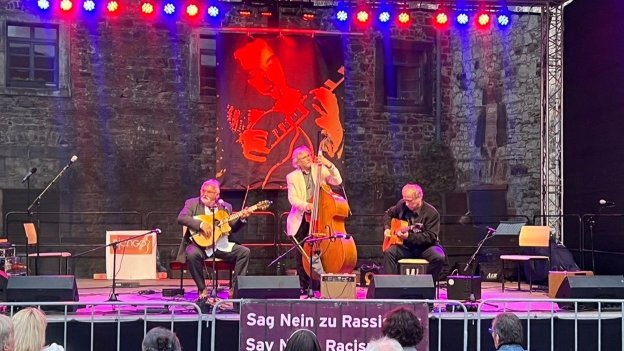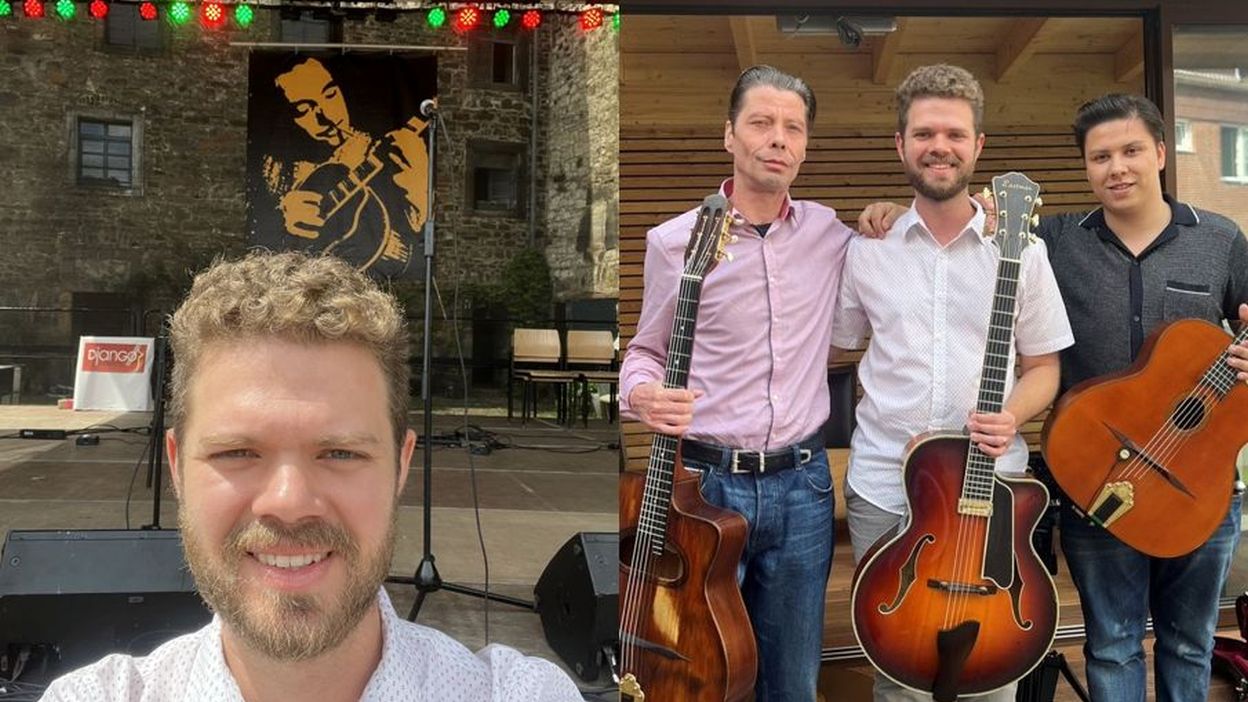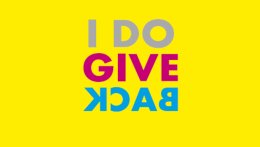Gabriel Condon
 Privat
Privat
The Django Reinhardt Festival Hildesheim, at which Gabriel Condon was able to perform
"During the scholarship period I developed a deeper appreciation for Sinti and Roma music and culture. I was honored that the musicians welcomed me readily into their community as a guest, and I was humbled by their willingness to share their experiences with me."
Gabriel Condon was able to complete a one-month research stay at the European Roma Institute for Arts and Culture (ERIAC) in Berlin, during which he made a lot of diverse professional and intercultural experiences. This opportunity was given to him thanks to a Respekt & Wertschätzung Scholarship.
He describes his experiences in the following:
The primary goal of my research stay in Berlin was to learn about the pedagogy, philosophy, and culture of Sinti and Roma jazz musicians. During my month-long stay, I successfully conducted video interviews with eight jazz musicians from the Sinti and Roma community in Europe. In preparation for the interviews, I developed questions, created appropriate consent documentation, organized the logistics of the interviews, and organized for translation when necessary. Following the interviews, I edited the video content for production.
The leadership team at the European Roma Institute for Arts and Culture (ERIAC) helped me to establish contact with musicians and cultural leaders in the Sinti and Roma community in Germany. Additionally, I travelled to the Django Reinhardt Festival in Hildesheim Germany to meet several Sinti and Roma jazz musicians from the Czech Republic and Poland. I had the opportunity to establish relationships with the musicians and to play music together. Subsequently, I also interviewed three of the musicians from the festival for my research.
To support ERIAC’s music initiative, I am currently working with them to release edited versions of the interview series on their media outlets. Additionally, I collaborated with ERIAC to produce a collaborative concert with internationally acclaimed Sinti and Roma jazz musicians at Stiftung Kai Dikhas in Berlin. I organized the musicians and the venue, and I performed in the concert. ERIAC provided funding and administrative guidance. The concert featured music from both Sinti and Roma and American jazz styles. It demonstrated the unique international connection between European Sinti and Roma jazz musicians and American jazz musicians.
While in Berlin, I assisted ERIAC in their office with administrative tasks. In turn, ERIAC provided me with office space to conduct interviews. Additionally, I enjoyed connecting with the staff informally. I worked with five members of the ERIAC staff in the Berlin office, and I also communicated with staff members who were working in their Serbia office and remotely. Beyond work-related discussions, I was also able to establish personal connections through conversations at lunch or on coffee breaks. From these conversations, I learned more about Sinti and Roma culture and German culture. Since it was my first time in Berlin, they helped me to connect with the city by sharing their favorite restaurants, shops, and historic sites to visit.
I enjoyed riding a bike around the city like a native Berliner to experience many of the fascinating historic buildings and monuments first-hand. I visited the Memorial to the Murdered Jews of Europe, Checkpoint Charlie, and other historic markers along the Wall. I visited tourist attractions such as the Brandenburg Gate, Berliner Fernsehturm, the Berliner Dom, Tempelhof airport, and open-air artisan markets. One weekend while visiting the Tiergarten, I witnessed an LGBTQ Pride festival. Since July was Pride Month, I also saw a Pride parade and other Pride artwork around the city. Additionally, I enjoyed sampling traditional German food and drink at restaurants and biergartens. While visiting Hildesheim, I rode a scooter downtown to visit the Historic Marketplace.

Privat
Gabriel Condon at the Django Reinhardt Festival together with fellow musicians
The site which I found the most moving was the Memorial to the Sinti and Roma Victims of National Socialism. When I visited the memorial I was the only person in attendance, and was therefore able to fully experience its beauty in the Tiergarten. These moments of solemn silence provided me an opportunity to reflect on the history of oppression and genocide that the Sinti and Roma have faced. Through this experience I developed a greater appreciation for the unique perspective of the Sinti and Roma and the importance of sharing their stories.
As this was my first trip to Germany, it was also my first immersive experience in German society and culture. I was struck by the high amount of investment in quality public transportation and education. Due to a new government subsidy, I was able to ride local transit at a reduced cost for the month of July. I also enjoyed riding a high-speed regional train to Hildesheim. This paradigm is quite different than in the U.S., where automobiles and airplanes are the preferred mode of transportation. Additionally, I learned more about the German education system, including the free pre-K opportunity which is offered to German families. This is also quite different from the U.S., where most pre-K opportunities are privatized and can be quite expensive.
Generally, I found the German people to be quite friendly, hospitable, and patient with my beginning German language skills. Many Berliners speak several languages including English and German. It also appeared to be common for Germans to travel to different countries for work or holiday. At the ERIAC office, the staff members travel frequently to facilitate exhibitions and events, and they collaborate virtually with international partners on a daily basis.
During the scholarship period I developed a deeper appreciation for Sinti and Roma music and culture. I was honored that the musicians welcomed me readily into their community as a guest, and I was humbled by their willingness to share their experiences with me. Importantly, my research demonstrated that jazz is an integral part of Sinti and Roma cultural identity, and that their jazz tradition is firmly rooted in aural learning, community, and social interaction.
I am currently working to construct an analysis framework for the interviews. This framework will allow me to develop further conclusions about my findings. I have already been invited to present my research at the 2023 Jazz Education Network Conference in the United States. I am also hoping to present at additional conferences, and to publish an article in a scholarly journal in the field of jazz education.
I am planning to further develop this research to compare the attributes of informal and formal learning in jazz education. My research on the practices of Sinti and Roma musicians in Europe will contribute to my understanding of informal jazz pedagogy and philosophy. Additionally, I am interested in learning from the perspectives of Black American jazz educators in the United States to determine an appropriate way to address the cultural and historical aspects of jazz in the context of higher education. Inspired by the research of literacy scholar Gholdy Muhammad, I hope to develop a pedagogy framework for jazz education that is historically and culturally responsive.
I anticipate that many of my personal and academic relationships forged in Germany will last for years beyond the scholarship period, hopefully leading to future collaborations. I am considering the possibility of inviting some of the musicians to the United States to present masterclasses and a concert at my home institution, the University of Michigan. These potential collaborations would not be possible without initially traveling to Berlin to conduct this research. I am grateful to the Respekt & Wertschätzung Scholarship by Dr. Michael Aven and the DAAD-Stiftung for making this project possible.
As of January 2023.


